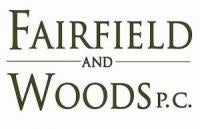originally published in the May 6, 2009 issue of the Colorado Real Estate Journal
In today’s financial market developer-owners are finding it increasingly difficult to find buyers for condominium and townhome product; and the secondary lending market (including FHA, Fannie Mae and Freddie Mac) isn’t making things any easier. Obtaining, and then maintaining, secondary lending project approval for new developments, especially condominium developments, has recently gotten more challenging. Project approval consultant Barbara Weade agrees that "under present market conditions all lenders and secondary market entities are looking very closely at condominiums with ever changing and more stringent requirements for the immediate future; thus it is critical for all (developers, lenders, buyers, sellers, etc.) to be aware of current requirements and challenges."
As a result, developers should consider, whenever possible, structuring their project as a planned community (referred to by FHA and Fannie Mae as a Planned Unit Development or PUD) rather than a condominium because many of the new, burdensome regulations imposed by the secondary lending market apply only to condominiums. Under Colorado law, the distinction between a planned community and a condominium lies solely in the ownership of common areas and not in the physical appearance of the project; that is, in a planned community the common areas are owned by the homeowners association, while in a condominium the common areas are owned by each homeowner in undivided interests. FHA regulations closely track this Colorado distinction between these two types of projects. However, Fannie Mae also requires that in bona fide Fannie Mae planned communities homeowners must own land. This Fannie Mae landownership requirement often limits a developer’s ability to structure a project as a planned community rather than a condominium. In any event, developers should carefully weigh their options in deciding how to form their communities from the outset in order to avoid being trapped into a regulatory framework that precludes access to the secondary market and therefore restricts marketability.
If a developer-owner must form a new community as a condominium rather than a planned community, the developer should be aware of new hurdles imposed primarily by Fannie Mae that will have an impact on the marketing of the project, as well as the formation and operation of the homeowners association. Some of these hurdles are summarized below.
Community Formation
1. Limitations on Commercial Uses. With respect to community formation issues, if the residential project is to include commercial uses as well, be aware that Fannie Mae will not approve the project if commercial activities encompass more than twenty percent of the project.
2. Owner Occupancy Mandates. Until recently, a condominium project would not be approved by either Fannie Mae or FHA until at least fifty-one percent of the total units in the project (or fifty-one percent in a legal phase if project development is phased) were sold or under a bona fide contract for sale as a principal residence or second home. Fannie Mae has now increased this requirement from fifty-one percent to seventy percent. FHA is likely to soon follow Fannie Mae’s lead on this occupancy requirement. Therefore, whenever possible, developers should give careful consideration to phasing the annexation of newly developed condominium units into a new condominium association in order to more easily meet these pre-sale thresholds.
Marketing
Fannie Mae is concerned that certain marketing concessions offered to buyers distort or artificially inflate the market value of condominiums, and therefore have now clarified that certain marketing concessions will make condominium projects ineligible for Fannie Mae approval. These prohibited concessions include advancing or reimbursing a buyer’s principal, interest, taxes or insurance payments due under a mortgage, and advancing or reimbursing to a buyer condominium association assessments. Other marketing concessions, such as paying or reimbursing origination fees, discount points and appraisal fees are not strictly prohibited but are subject to limitations based upon the loan-to-value ratios of a particular sale. Fannie Mae requires that any concession given by a developer must be included in the purchase contract for the home. Developers must now be extra careful in structuring their concession programs so as not jeopardize Fannie Mae approvals.
Association Operations
1. Homeowner Assessments. Fannie Mae used to require that no more than fifteen percent of homeowner association’s assessments be more than one month past due. This Fannie Mae requirement has now been revised to require that no more than fifteen percent of all units in a project be more than thirty days past due in the payment of assessments. With unemployment rising and homes going into foreclosure, this fifteen percent threshold is easily being reached making more projects ineligible for Fannie Mae approval.
2. Hazard Insurance. Fannie Mae has also amended their homeowner association hazard insurance requirements at condominium projects. Most condominium covenants currently require the association to maintain hazard insurance that covers the unit “as-built” by the developer. Fannie Mae now requires that buyers obtain a “walls-in” insurance policy, commonly known as an HO-6 policy, in an amount not less than twenty percent of the unit’s appraised value. While an HO-6 policy may be beneficial to a buyer, the requirement to obtain such a policy in the specified amount is yet another financial obligation impacting condominium sales.
In addition to carefully timing and budgeting for residential construction in today’s financial climate, developers must now also take into more careful consideration the requirements of the secondary lending market when forming, marketing and operating residential projects; these requirements have become more restrictive, especially for condominium projects.
Thanks to Barbara Weade for her contribution to this article. Barbara can be reached at 303-759-6730.



 />i
/>i

